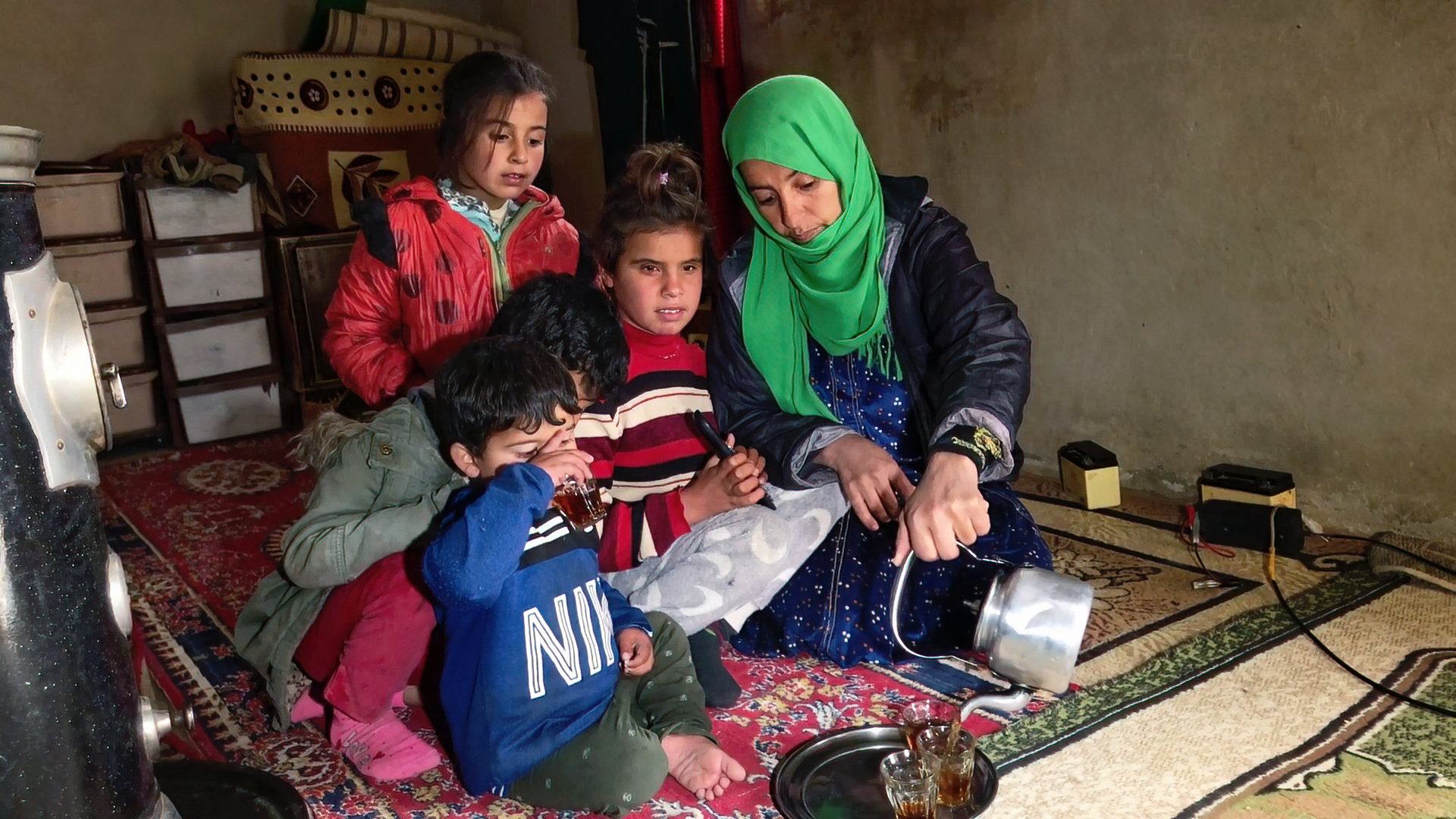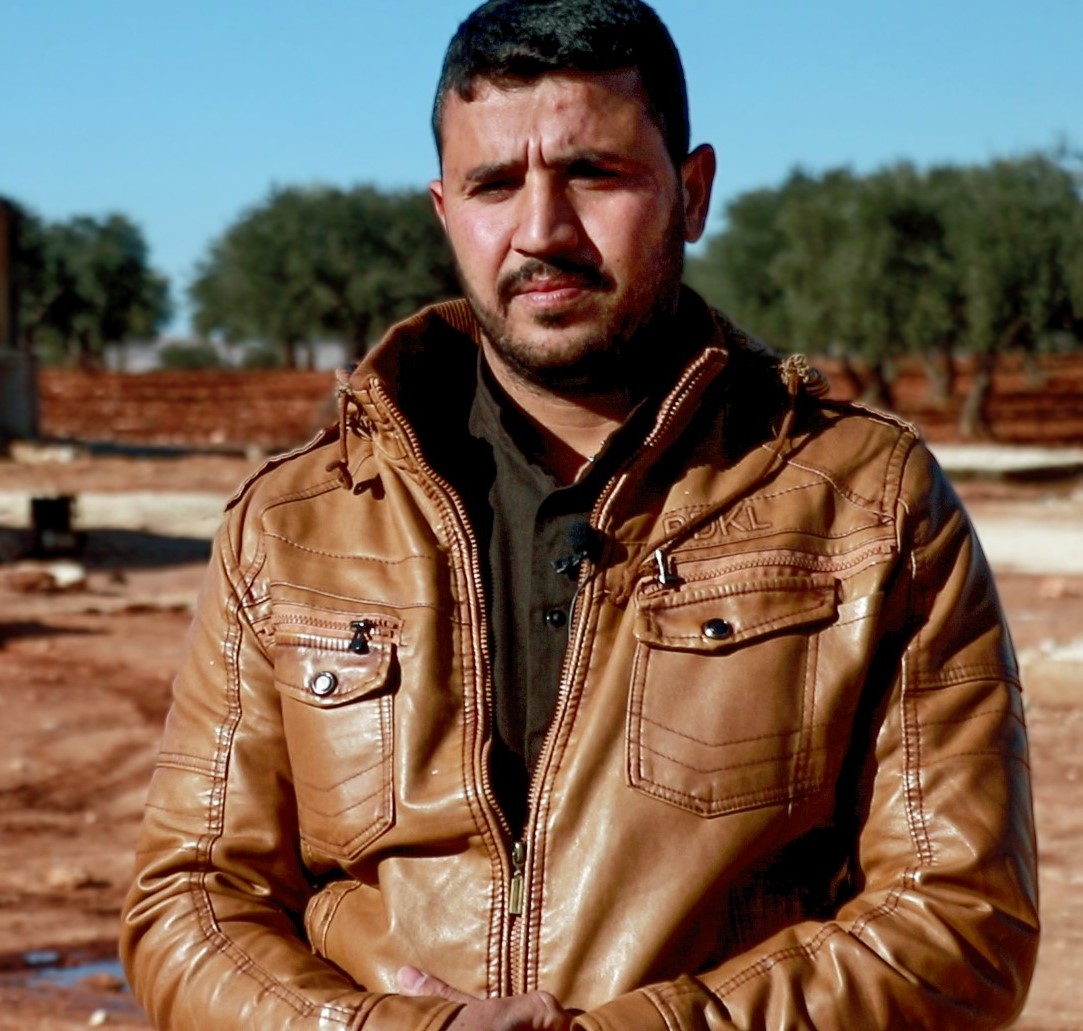Wasserkrise in Nordsyrien
Every day, our Syrian partner organisation is eagerly awaited. The team steers a tanker truck between the run-down tents towards the tin tank and brings out the long hose. None of the people waiting is bothered by the fact that the paint on the truck is peeling and the arche noVa sticker on the tank is crooked. The main thing is that the water is delivered. People in Syria have been living in war for eleven long years. Here in the north of the country it is still particularly unsafe. Armed incidents must be expected at any time. In recent years, the water infrastructure has also been severely damaged. Observers assume that some of this damage was deliberate. It is undisputed that it is primarily the civilian population that is affected.
Securing supplies in emergency shelters
Since 2012, arche noVa has been continuously working with humanitarian aid in Syria. The people in Shayaat and the other locations do not want to imagine what will happen when the tankers stop coming. To have or not to have 50 litres of water per person per day is a question of survival. Those who do not get water from
If you don't get water from aid organisations, you have to buy it from commercial traders and spend a large part of your income on it. In need, many people fetch water from rivers or unsafe boreholes with fatal consequences for their health. Diarrhoea and other water-borne diseases are common. At our project sites, our local team therefore regularly checks the water quality of the supplies.
We had our own land and could sell the harvest. We had goats to graze and a house to live in. Then came the flight. At first we had nothing, no tent, no food, no water. Whenever we wanted to settle somewhere, the landowners came and sent us away. Now we live here in this camp. Fortunately, the water tanks are regularly filled here.
Water shortage also due to drought
In Syria, the prices for water have risen in recent years also because of water shortages. Water is particularly scarce in the north-east, where our second project area is located. Before the war, this region was considered the breadbasket of the country. In the meantime, rainfall is failing more and more often, so that even the Euphrates has shrunk to a fraction of its original size. Several years of drought and the ongoing war are a cruel combination for the people of Syria. "We are at the end of our tether," says Amna Ismail, who lives with her husband and four children in a village in north-eastern Syria. "We could no longer keep our sheep, even our trees are gradually drying up. But we don't care about that anymore. Now it's all about water for us." When there is enough money, the family buys 100 litres from the local trader. But that is hardly enough, says Amna Ismail. She often has to ask her neighbours to help out, but they often don't have enough themselves.
In view of the enormous need for help, our local team is currently renewing water pipes and repairing the pumping station in the Ismail family's home. Then access to water will be possible and affordable again for everyone in the village. In other places, too, arche noVa relies on this longer-term project approach and restores the function of communal water systems and renews irrigation channels for agriculture in many places - provided that the security situation allows this. However, as this is still not the case everywhere in 2022, water deliveries by tankers remain existentially important and therefore part of our humanitarian aid in Syria for the time being.














